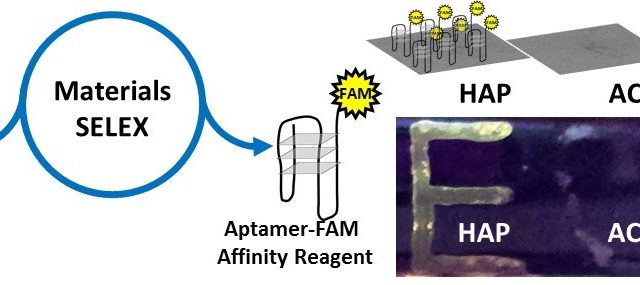A historic semester has come to a close! We are very proud of all the hard work that students did in a remote setting in the second half of the semester. That did put a damper on research progress, but we have been able to stay in touch as a research group and help each other along the way. We will pick things back up this summer and fall as soon as...
Read MoreScientist Without a Lab?
What does a scientist without a lab do? Undergraduate researchers at Emmanuel College are no different than any other chemist out there. We miss the lab! This can be difficult to deal with, for sure. Here’s some great advice from Dr. Zoe Ayres: https://twitter.com/ZJAyres/status/1242088285217972225/photo/1 So, we stay connected with an occasional...
Read MorePublication! Students publish in analytical chemistry journal
Congratulations to undergraduate students and chemistry alumni on their recent article published in Analytica Chimica Acta titled “Selected DNA aptamers as hydroxyapatite affinity reagents“. This work has been a long time in the making beginning with the origins of our SELEX work by Hillary Butts and Samantha Watson. This particular selection...
Read MoreGabby Zabala ’21 – QCM Questions
Gabby has made her way into the lab this semester! She became involved in Dr. Gerdon’s research team last semester and has finally started working on some QCM analysis. So far Gabby has measured the change in frequency compared to the change in resistance for several QCM crystals in a non-mass loading system. Once this initial experiment is done, Gabby...
Read MoreRylie Bolarinho ’22 – New Nanoparticles!
Rylie is very excited to start working in the lab this semester! In the fall, Rylie joined Dr. Gerdon’s research group after reading several literature papers and coming to group meetings. Now, she is working on gold nanoparticle synthesis using a new molecule, 3-mercaptobenzoic acid, as the organic group. Using the Azubel method, she hopes to be able to...
Read MoreLogan McGloin ’22 – microfluidics and QCM
This semester, Logan is looking forward to expanding his technique in microfluidics by adding QCM (quartz crystal microbalance) into the mix. Adding QCM allows Logan to measure and calculate the amount of solid formed in the device during the experiment of calcium carbonate or calcium phosphate mineralization. However, Logan first needs to work with Dr....
Read More

Recent Comments